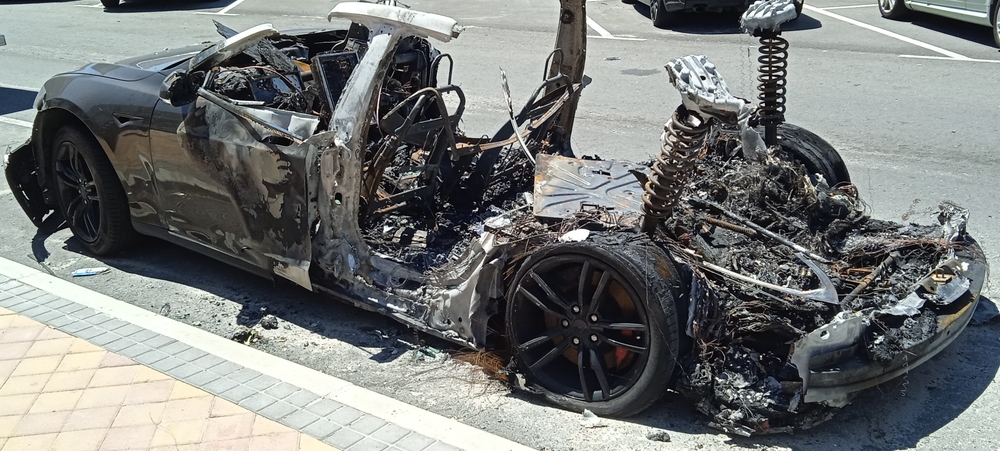In a recent commentary in CT Mirror, Peter Millman and Bernard Pelletier from People’s Action for Clean Energy made the case for EVs, writing, “There are many used EVs available and more are coming, too. A Chevy Bolt purchased in 2017 cost $42,000 (before incentives). That same car now starts under $27,000 according to Kelley Blue Book.”
Highlighting the Chevy Bolt to show the demand for used EVs is a fascinating choice. After several spontaneous fires, some of which destroyed the owner’s car as well as their home, Chevrolet recalled nearly all Bolts from the model years 2017-22. The culprit? Defective batteries that were so faulty that the National Highway Traffic Safety Administration (NHTSA) advised nearly all Bolt “owners to park their vehicles outside and away from structures, and to not charge the vehicles overnight,” among other precautions until they could be replaced.
NHTSA also calculated that “from 2018 through 2022 there were about 32 million recalls, including both internal combustion engine and electric vehicles (EVs). Of those, 8.6 percent (2.74 million) were EVs. Looking straight at the numbers, EVs were disproportionately affected considering they were just about 2.5 percent of vehicles on the road over the same time period.” The report continues, “EVs have more recalls and lower initial quality than the internal combustion engine (ICE) vehicles they are replacing. “As of November 2022, 82% of 2017 Chevy Bolts have had their batteries replaced, compared to only 2% of 2020-21 models.
While upper-income earners might be willing to risk the fire hazard to gain social prestige for going green, lower-income earners don’t have that luxury. Lower-income homeowners are less likely to have home insurance as a hedge against EV-caused garage fires.
For households forced to downsize from two cars to one car (which is more likely in the case of an EV), a recall could be nothing more than a nuisance for a few weeks. But for lower-income households, temporarily downsizing from one car to none could mean the difference from vaulting into the middle-income bracket, to getting let go from a promising job. Access to automobiles has been shown to have a strong positive relationship to employment outcomes.
Ultimately, state incentives should not be counted on to continue indefinitely to prop up Connecticut’s EV market, because the state’s fiscal health will remain cloudy for the foreseeable future.
Connecticut cannot count on used EVs to keep the price of new EVs in check. All signs point to used EVs losing value at a faster clip than combustion vehicles. Used EVs driven in cold climates like Connecticut retain less value than used EVs in warm climates like California. According to Michigan Technological University’s Advanced Power Systems Research Center, the life expectancy of an EV battery decreases by 20% when driven at 32 degrees and deteriorates even faster the colder it gets.
Forcing Connecticut households, especially low-income households, to replace their combustion vehicles with EVs could prove disastrous for the reasons outlined. Anyone can find reasons to expect that EVs will be of higher quality and lower cost by 2035.
But what happens if other states start banning combustion vehicles, pushing up the demand and price for EVs across the country? A shortage of quality batteries could result, making mass recalls more likely as defective batteries become more frequent, especially for lower-end models. All Connecticut households should have the choice of when (and if) they transition from combustion vehicles to EVs.

